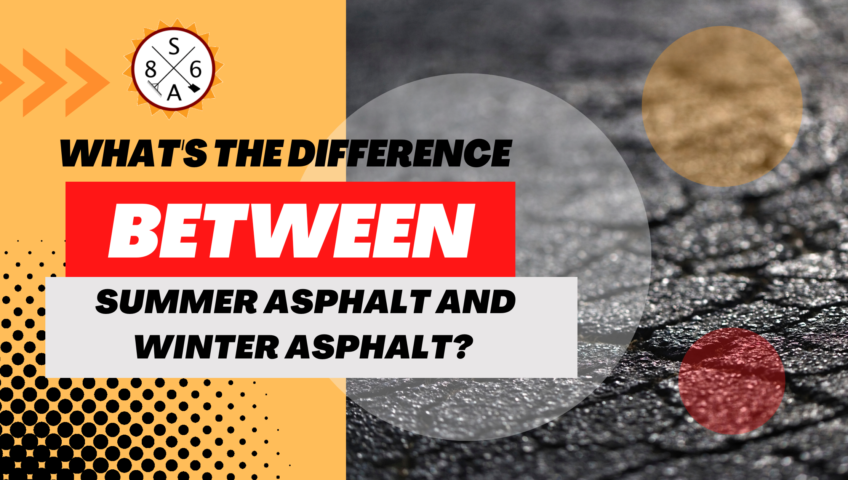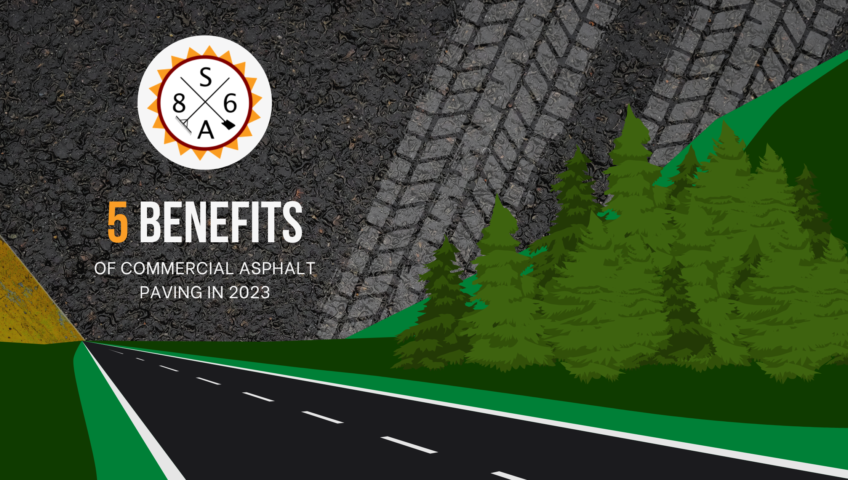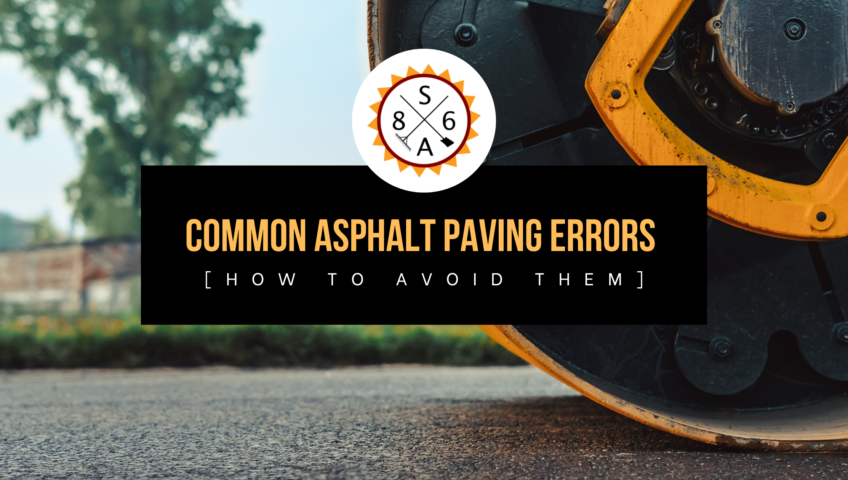
7 Signs You Need a Mill and Overlay
When it comes to private road construction, something like an asphalt driveway is an investment – and it’s one that should always be protected. That includes paying attention to certain warning signs that indicate a mill and overlay would be highly recommended for not only your driveway, but for also sidewalks and other private roads you may be dealing with.
Asphalt Chipping
One of the most immediate signs that you need a mill and overlay comes by way of any asphalt chipping that you may be experiencing. This is most commonly caused by structural stress and a mill and overlay can help cut down on this a great deal.
Large and Deep Cracks
Large and deep cracks are similar warning sign in that they are caused by overloading thin driveways, sidewalks, or private roads. Note that these cracks will need to be properly repaired prior to the mill and the overlay being added.
Numerous Small Cracks
Numerous small cracks are usually caused by weaker base materials. However, excessive stress and even poor drainage can also exacerbate the issue significantly.
Large Potholes
If water is allowed to seep into any of those aforementioned cracks that you’re seeing with your driveway, sidewalk, or private road, it is highly likely that you’ll be looking at potholes in your future. That water then freezes and expands and when it thaws, it causes those cracks to turn into potholes. Luckily, a mill and overlay can help with all of this.
Numerous Pockmarks
One clear warning sign that you need a mill and overlay has to do with numerous pockmarks forming over a (relatively) short period of time. This, too, is usually caused by one of a few unfortunately common reasons – like a lack of repairs, maintenance and general upkeep over the years, weak materials used in the subgrade, and poor construction overall. These pockmarks will likely continue to worsen and form full-fledged potholes if they aren’t addressed as soon as possible.
Faded Color
Obviously, an asphalt road, pathway, or driveway is going to be exposed to the elements constantly. As time marches on, and it sees a constant exposure to not only the sun and heat but also rain, wind, and even snow in some parts of the country, the asphalt coating will slowly begin to degrade. That will not only leave your asphalt more susceptible to normal wear and tear like cracking, but it will also cause it to fade in color far easier, too.
Widespread Oil Staining
Let’s face facts – sometimes, your car leaks oil or other types of chemicals. But if you don’t clean up those spills right away, a number of bad things can happen. For starters, that stain will become harder and harder to clean – creating an unsightly appearance. But also, that oil can seep further into the asphalt and cause additional damage like cracking. A mill and overlay can help take care of all this and more.
If you’d like to find out more information about the signs to watch out for to let you know that you might need a mill and overlay, or if you just have any additional questions about things like private road construction that you’d like to go over in more detail, please don’t delay – contact us today.
When it comes to private road construction, something like an asphalt driveway is an investment – and it’s one that should always be protected. That includes paying attention to certain warning signs that indicate a mill and overlay would be highly recommended for not only your driveway, but for also sidewalks and other private roads you may be dealing with.
Asphalt Chipping
One of the most immediate signs that you need a mill and overlay comes by way of any asphalt chipping that you may be experiencing. This is most commonly caused by structural stress and a mill and overlay can help cut down on this a great deal.
Large and Deep Cracks
Large and deep cracks are similar warning sign in that they are caused by overloading thin driveways, sidewalks, or private roads. Note that these cracks will need to be properly repaired prior to the mill and the overlay being added.
Numerous Small Cracks
Numerous small cracks are usually caused by weaker base materials. However, excessive stress and even poor drainage can also exacerbate the issue significantly.
Large Potholes
If water is allowed to seep into any of those aforementioned cracks that you’re seeing with your driveway, sidewalk, or private road, it is highly likely that you’ll be looking at potholes in your future. That water then freezes and expands and when it thaws, it causes those cracks to turn into potholes. Luckily, a mill and overlay can help with all of this.
Numerous Pockmarks
One clear warning sign that you need a mill and overlay has to do with numerous pockmarks forming over a (relatively) short period of time. This, too, is usually caused by one of a few unfortunately common reasons – like a lack of repairs, maintenance and general upkeep over the years, weak materials used in the subgrade, and poor construction overall. These pockmarks will likely continue to worsen and form full-fledged potholes if they aren’t addressed as soon as possible.
Faded Color
Obviously, an asphalt road, pathway, or driveway is going to be exposed to the elements constantly. As time marches on, and it sees a constant exposure to not only the sun and heat but also rain, wind, and even snow in some parts of the country, the asphalt coating will slowly begin to degrade. That will not only leave your asphalt more susceptible to normal wear and tear like cracking, but it will also cause it to fade in color far easier, too.
Widespread Oil Staining
Let’s face facts – sometimes, your car leaks oil or other types of chemicals. But if you don’t clean up those spills right away, a number of bad things can happen. For starters, that stain will become harder and harder to clean – creating an unsightly appearance. But also, that oil can seep further into the asphalt and cause additional damage like cracking. A mill and overlay can help take care of all this and more.
If you’d like to find out more information about the signs to watch out for to let you know that you might need a mill and overlay, or if you just have any additional questions about things like private road construction that you’d like to go over in more detail, please don’t delay – contact us today.




